1999 Box Office Flops
Remaining Movies to be added: Angela’s Ashes | Cradle Will Rock | Magnolia | Man on the Moon | Play It to the Bone | Snow Falling on Cedars | Titus
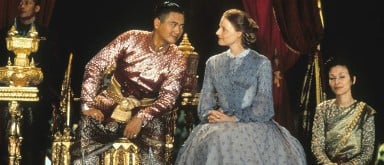 Anna and the King
Anna and the KingBudget: $70 million
Financed by: FOX
Domestic Box Office: $39,263,420
Overseas Box Office: $74,733,517
Read Full Article
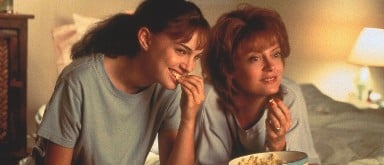 Anywhere But Here
Anywhere But HereBudget: $23 million
Financed by: FOX
Domestic Box Office: $18,670,401
Overseas Box Office: $4,961,528
Read Full Article
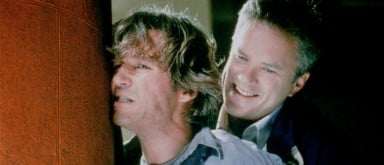 Arlington Road
Arlington RoadBudget: $31 million
Financed by: Lakeshore Entertainment
Domestic Box Office: $24,756,177
Overseas Box Office: $16,311,134
Read Full Article
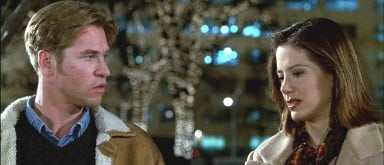 At First Sight
At First SightBudget: $42 million
Financed by: MGM
Domestic Box Office: $22,365,133
Overseas Box Office: N/A
Read Full Article
 Bicentennial Man
Bicentennial ManBudget: $100 million
Financed by: Disney; Sony
Domestic Box Office: $58,223,861
Overseas Box Office: $29,200,000
Read Full Article
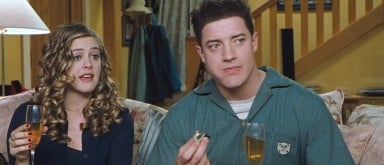 Blast From The Past
Blast From The PastBudget: $32 million
Financed by: New Line
Domestic Box Office: $26,511,114
Overseas Box Office: $13,751,906
Read Full Article
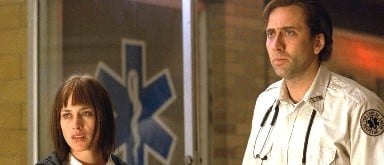 Bringing Out The Dead
Bringing Out The DeadBudget: $32 million
Financed by: Paramount; Disney
Domestic Box Office: $16,797,191
Overseas Box Office: N/A
Read Full Article
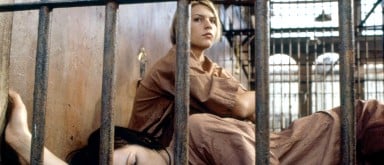 Brokedown Palace
Brokedown PalaceBudget: $23 million
Financed by: FOX
Domestic Box Office: $10,115,013
Overseas Box Office: $1,000,752
Read Full Article
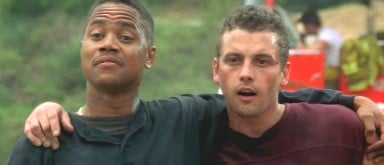 Chill Factor
Chill FactorBudget: $34 million
Financed by: Morgan Creek; Warner Bros
Domestic Box Office: $11,263,966
Overseas Box Office: N/A
Read Full Article
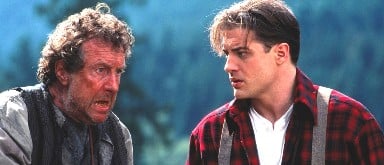 Dudley Do-Right
Dudley Do-RightBudget: $22 million
Financed by: Universal
Domestic Box Office: $9,974,410
Overseas Box Office: N/A
Read Full Article
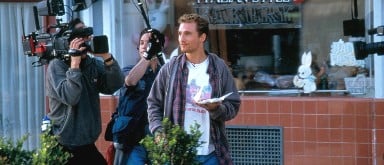 EDtv
EDtvBudget: $55 million
Financed by: Universal
Domestic Box Office: $22,431,897
Overseas Box Office: $12,811,000
Read Full Article
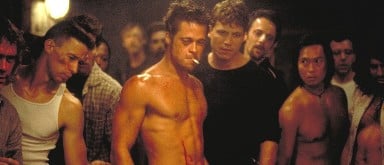 Fight Club
Fight ClubBudget: $68 million
Financed by: FOX; New Regency
Domestic Box Office: $37,030,102
Overseas Box Office: $63,823,651
Read Full Article
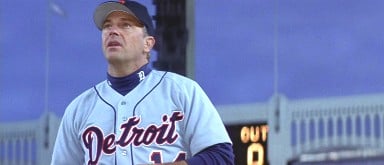 For Love Of The Game
For Love Of The GameBudget: $50 million
Financed by: Universal
Domestic Box Office: $35,188,640
Overseas Box Office: $10,924,000
Read Full Article
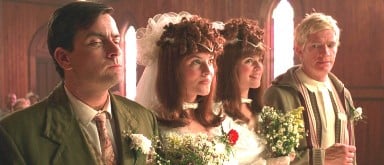 Free Money
Free MoneyBudget: $22 million
Financed by: Filmline
Domestic Box Office: $0
Overseas Box Office: $0
Read Full Article
 Gloria
GloriaBudget: $30 million
Financed by: Mandalay Pictures
Domestic Box Office: $4,197,729
Overseas Box Office: $800,000
Read Full Article
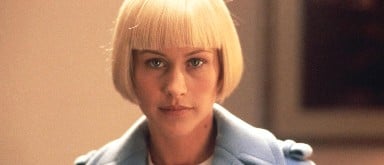 Goodbye Lover
Goodbye LoverBudget: $20 million
Financed by: New Regency
Domestic Box Office: $1,940,299
Overseas Box Office: N/A
Read Full Article
 Grey Owl
Grey OwlBudget: $30 million
Financed by: Allied Filmmakers; Largo Entertainment
Domestic Box Office: $632,617
Overseas Box Office: N/A
Read Full Article
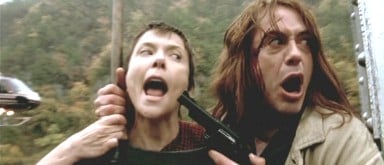 In Dreams
In DreamsBudget: $30 million
Financed by: DreamWorks
Domestic Box Office: $12,017,369
Overseas Box Office: N/A
Read Full Article
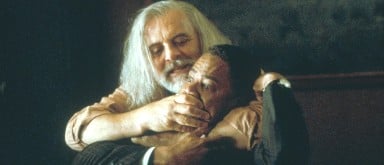 Instinct
InstinctBudget: $55 million
Financed by: Spyglass Entertainment
Domestic Box Office: $34,105,207
Overseas Box Office: $2,600,000
Read Full Article
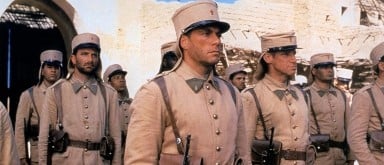 Legionnaire
LegionnaireBudget: $35 million
Financed by: Quadra Entertainment
Domestic Box Office: $0
Overseas Box Office: N/A
Read Full Article
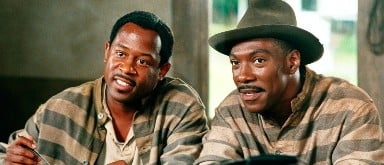 Life
LifeBudget: $75 million
Financed by: Universal
Domestic Box Office: $63,886,029
Overseas Box Office: $9,459,000
Read Full Article
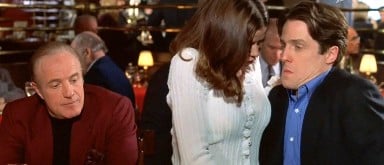 Mickey Blue Eyes
Mickey Blue EyesBudget: $36 million
Financed by: Castle Rock; Warner Bros; Polygram
Domestic Box Office: $33,864,342
Overseas Box Office: $20,400,000
Read Full Article
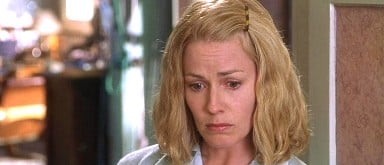 Molly
MollyBudget: $21 million
Financed by: MGM
Domestic Box Office: $17,650
Overseas Box Office: $0
Read Full Article
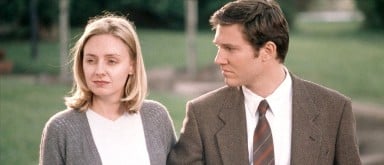 Mumford
MumfordBudget: $28 million
Financed by: Disney
Domestic Box Office: $4,555,459
Overseas Box Office: N/A
Read Full Article
 Muppets From Space
Muppets From SpaceBudget: $24 million
Financed by: Sony
Domestic Box Office: $16,625,807
Overseas Box Office: $5,697,805
Read Full Article
 Music Of The Heart
Music Of The HeartBudget: $27 million
Financed by: Miramax
Domestic Box Office: $14,859,394
Overseas Box Office: N/A
Read Full Article
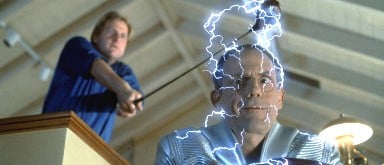 My Favorite Martian
My Favorite MartianBudget: $45 million
Financed by: Disney
Domestic Box Office: $36,850,101
Overseas Box Office: $10,400,000
Read Full Article
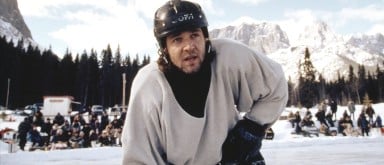 Mystery, Alaska
Mystery, AlaskaBudget: $28 million
Financed by: Disney
Domestic Box Office: $8,891,623
Overseas Box Office: N/A
Read Full Article
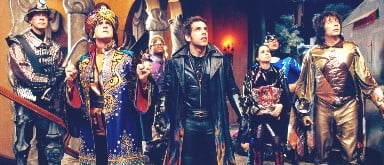 Mystery Men
Mystery MenBudget: $68 million
Financed by: Universal
Domestic Box Office: $29,762,011
Overseas Box Office: $3,699,000
Read Full Article
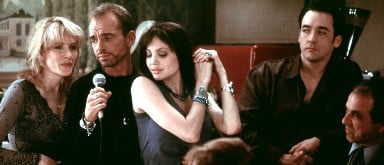 Pushing Tin
Pushing TinBudget: $38 million
Financed by: FOX; New Regency
Domestic Box Office: $8,408,835
Overseas Box Office: N/A
Read Full Article
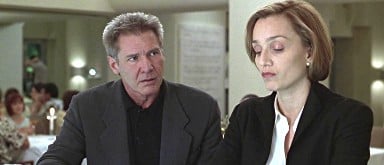 Random Hearts
Random HeartsBudget: $78 million
Financed by: Sony; GmbH & Company Medien KG
Domestic Box Office: $31,502,583
Overseas Box Office: $43,105,987
Read Full Article
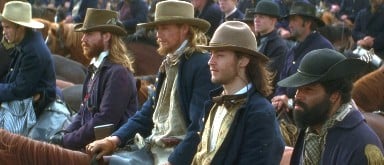 Ride With The Devil
Ride With The DevilBudget: $38 million
Financed by: Universal; Good Machine
Domestic Box Office: $635,096
Overseas Box Office: N/A
Read Full Article
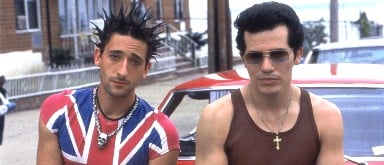 Summer Of Sam
Summer Of SamBudget: $22 million
Financed by: Disney
Domestic Box Office: $19,288,130
Overseas Box Office: N/A
Read Full Article
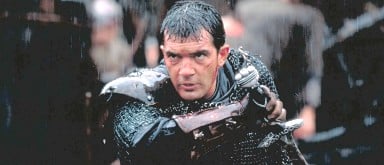 The 13th Warrior
The 13th WarriorBudget: $85 million
Financed by: Disney
Domestic Box Office: $32,698,899
Overseas Box Office: $29,000,000
Read Full Article
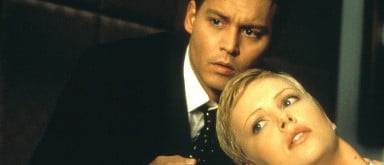 The Astronaut’s Wife
The Astronaut’s WifeBudget: $33 million
Financed by: New Line
Domestic Box Office: $10,672,566
Overseas Box Office: $8,926,022
Read Full Article
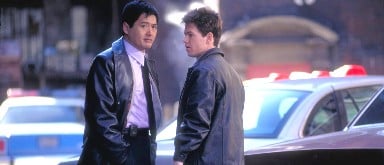 The Corruptor
The CorruptorBudget: $31 million
Financed by: New Line
Domestic Box Office: $15,164,492
Overseas Box Office: $9,329,109
Read Full Article
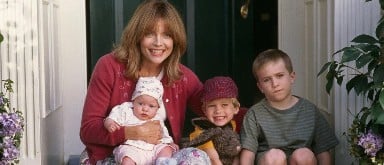 The Deep End Of The Ocean
The Deep End Of The OceanBudget: $38 million
Financed by: Mandalay Pictures
Domestic Box Office: $13,898,649
Overseas Box Office: $14,222,451
Read Full Article
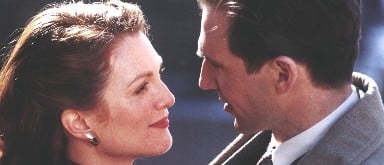 The End of the Affair
The End of the AffairBudget: $23 million
Financed by: Sony
Domestic Box Office: $10,827,816
Overseas Box Office: $11,000,000
Read Full Article
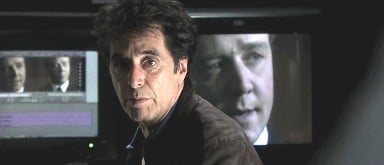 The Insider
The InsiderBudget: $68 million
Financed by: Disney; Spyglass Entertainment
Domestic Box Office: $29,089,912
Overseas Box Office: $31,200,000
Read Full Article
 The Iron Giant
The Iron GiantBudget: $48 million
Financed by: Warner Bros
Domestic Box Office: $23,159,305
Overseas Box Office: $8,174,612
Read Full Article
 The King And I
The King And IBudget: $22 million
Financed by: Morgan Creek
Domestic Box Office: $11,993,021
Overseas Box Office: $904,618
Read Full Article
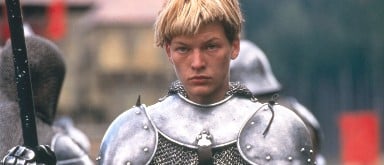 The Messenger: The Story of Joan of Arc
The Messenger: The Story of Joan of ArcBudget: $63 million
Financed by: Gaumont
Domestic Box Office: $14,276,317
Overseas Box Office: $52,700,000
Read Full Article
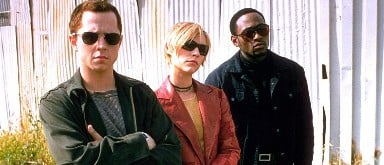 The Mod Squad
The Mod SquadBudget: $21 million
Financed by: MGM
Domestic Box Office: $13,263,993
Overseas Box Office: $2,155,311
Read Full Article
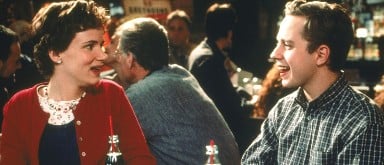 The Other Sister
The Other SisterBudget: $32 million
Financed by: Disney
Domestic Box Office: $27,807,627
Overseas Box Office: $3,365,683
Read Full Article
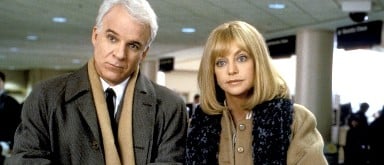 The Out-of-Towners
The Out-of-TownersBudget: $40 million
Financed by: Paramount; Cinevisions Ice
Domestic Box Office: $28,544,120
Overseas Box Office: $4,700,000
Read Full Article
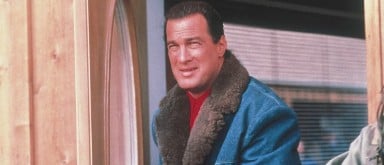 The Patriot
The PatriotBudget: $35 million
Financed by: Interlight
Domestic Box Office: $0
Overseas Box Office: N/A
Read Full Article
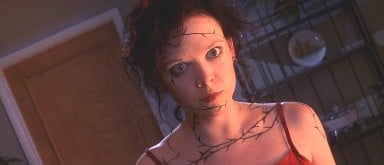 The Rage: Carrie 2
The Rage: Carrie 2Budget: $21 million
Financed by: MGM
Domestic Box Office: $17,762,705
Overseas Box Office: $2,400,000
Read Full Article
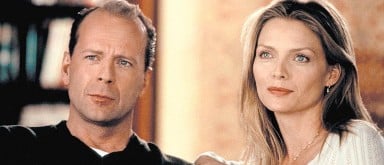 The Story Of Us
The Story Of UsBudget: $50 million
Financed by: Castle Rock; Universal
Domestic Box Office: $27,100,031
Overseas Box Office: $31,800,000
Read Full Article
 The Thirteenth Floor
The Thirteenth FloorBudget: $18 million
Financed by: Centropolis Entertainment; Sony; Filmstiftung NRW
Domestic Box Office: $11,916,661
Overseas Box Office: $6,647,427
Read Full Article
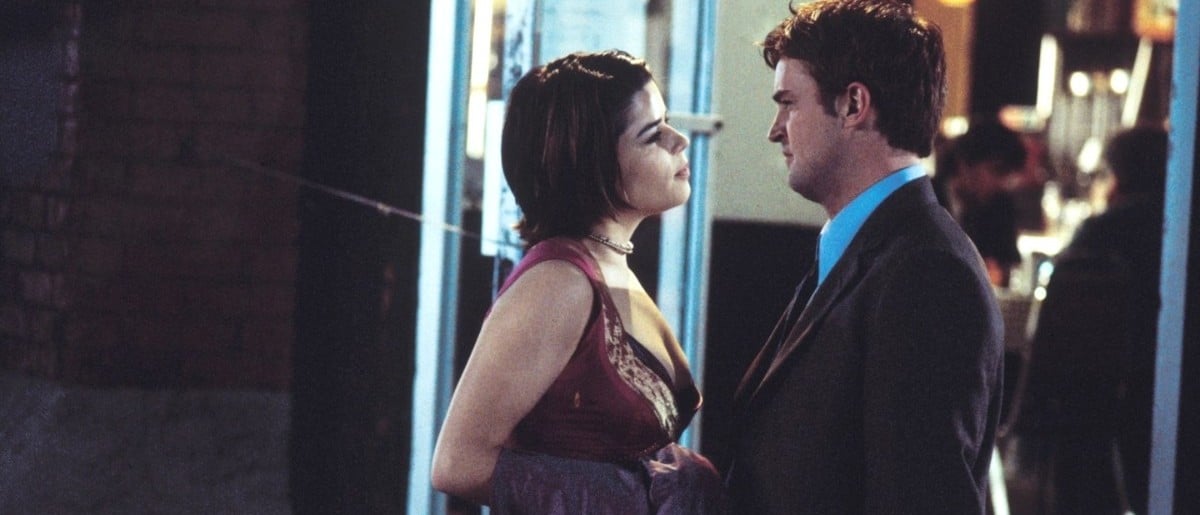 Three To Tango
Three To TangoBudget: $20 million
Financed by: Warner Bros; Village Roadshow; Outlaw Productions
Domestic Box Office: $10,570,375
Overseas Box Office: $5,800,000
Read Full Article
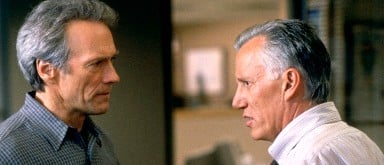 True Crime
True CrimeBudget: $38 million
Financed by: Warner Bros
Domestic Box Office: $16,649,768
Overseas Box Office: $11,947,563
Read Full Article
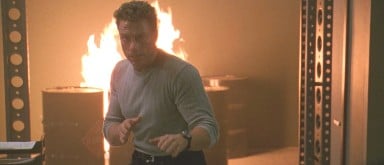 Universal Soldier: The Return
Universal Soldier: The ReturnBudget: $22 million
Financed by: Sony
Domestic Box Office: $10,667,893
Overseas Box Office: $2,700,000
Read Full Article
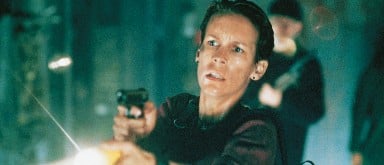 Virus
VirusBudget: $70 million
Financed by: Mutual Film Company; Tele München; BBC; Toho-Towa; UGC PH; Universal
Domestic Box Office: $14,036,005
Overseas Box Office: $16,616,000
Read Full Article

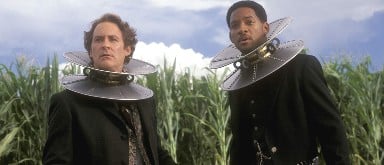
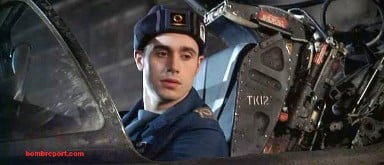
Will you add Sunshine with Ralph fiennes
Hoping the rest are spread across along with ’97 on Christmas Day!
How about adding The Adventures of Elmo in Grouchland? That film made between $17-26 million dollars and only made $11.6 million total.
Interesting how a lot of these have something to do with outer space.
Will Boondock Saints be included on this list? It had a $30M budget but was dumped into the theaters, although it did great on home video.
All trades info on the budget is either a very cheap $6M or $7M
Are the remainder of the 1999 and ’98 titles going to be added leading up to the new year?
You’re not gonna add Elmo in Grouchland or Jakob the Liar?
As terrible as Jakob was, it was a small personal project for Robin Williams that cost less than $15M and was given a tiny ad spend. Elmo cost about $17M.
My predictions for the remainder of the year are:
October: Mystery Alaska, Grey Owl, Random Hearts, Fight Club, The Story of Us, Bringing Out the Dead, Molly, Three to Tango, Music of the Heart
November: The Bachelor, The Insider, Anywhere But Here, The Messenger: The Story of Joan of Arc, Liberty Heights, Flawless, Ride with the Devil
December: The End of the Affair, Cradle Will Rock, Anna and the King, Bicentennial Man, Magnolia, Topsy-Turvy, Man on the Moon, Angela’s Ashes, Play It to the Bone, Snow Falling on Cedars
I forgot to mention Magnolia (1999). One of my favorite movies of that year, but it performed rather poorly at the box office.
“Election” grosses $14.9 million on a $25 million budget.
Election cost under $10M. Don’t go by most mojo numbers during this time period — they are not based on anything resembling reality. Classic movie though.
From TV Tropes:
The 13th Warrior (1999) — Budget, $85 million (not counting marketing costs), $160 million (counting them). Box office, $61,698,899. When adjusted for inflation, this is possibly the biggest flop of all time depending on how the numbers are calculated with an upper figure of $183 million lost. It was also critically panned and had to deal with the undertow of another film Disney/Buena Vista released a few weeks earlier, The Sixth Sense. This is the last time Michael Crichton took a producer job on a theatrical film in his life, it impaled the careers of screenwriters William Wisher and Warren Lewis. Despite the success of his remake of The Thomas Crown Affair director John McTiernan suffered a career setback that became fatal with a three-strike combo of Rollerball and Basic, and being in prison and declaring bankruptcy a few years later. The film also led to Omar Sharif briefly retiring from acting. Disney ironically also jettisoned studio chief Joe Roth (who replaced Jeffrey Katzenberg) at the end of the year this film was released on the back of this, several other critical busts, and Roth allegedly not getting along with CEO Michael Eisner.
The Adventures of Elmo in Grouchland (1999) — Budget, $26 million. Box office, $11,683,047. Both this and Muppets from Space caused The Jim Henson Company and Sony Pictures Entertainment to dissolve their “Jim Henson Pictures” joint venture. A third Sesame Street film is currently in development though.
Anna and the King (1999) — Budget, $75 million. Box office, $39,263,420 (domestic), $113,996,937 (worldwide). This historical drama based on Anna Leonowens and her time in the Siamese court was intended to be more historically respectful than The King and I, though it still got banned in Thailand. The critics were mixed, though they liked it far better than the animated film of The King and I released earlier that year.
The Astronaut’s Wife (1999) — Budget, $80 million. Box office, $10,672,566 (domestic), $19,598,588 (worldwide). This movie becoming one of the biggest critical and commercial bombs of 1999 resulted in the career of Rand Ravich burning on reentry; he only had one more film after this, and then he plummeted to the C-list of Hollywood producers.
At First Sight (1999) — Budget, $60 million. Box office, $22,365,133. This was the one and only screenplay by Steve Levitt.
The Bachelor (1999) — Budget, $21 million. Box office, $21,760,240 (domestic), $36,911,617 (worldwide). This remake of Seven Chances was universally panned by critics and fell flat at the box office after debuting at number three. Chris O’Donnell made one more film, Vertical Limit, before his temporary hiatus from the big screen (which had more to do with his family than anything).
Bicentennial Man (1999) — Budget, $100 million. Box office, $87,423,861. A hard hit to Robin Williams’s career, and the film that led to his second feud with The Walt Disney Company, who produced this film alongside Columbia.
Breakfast of Champions (1999) — Budget, $12 million. Box office, $178,278. The film version of Kurt Vonnegut’s satirical novel received scathing reviews from critics and topped out at 11 theaters. Vonnegut himself had nothing good to say about it.
Brokedown Palace (1999) — Budget, $25 million. Box office, $10,115,013. This is the final film directed by Jonathan Kaplan before he focused his career on TV shows. This was banned in Thailand for its negative depiction of its legal system. Star Claire Danes was banned in the Philippines, where it was filmed, for making unflattering comments about the country in an interview. This and The Mod Squad derailed Danes’ career for a good bit.
Chill Factor (1999) — Budget, $70 million. Box office, $11,263,966. This was director Hugh Johnson’s only cinematic directoral effort, and the film receiving a sub-zero reception from critics and the box office put his cinematic career on ice until The Chronicles of Riddick, where he returned to being a cinematographer.
Cookie’s Fortune (1999) – Budget, $10 million. Box office, $10.9 million. This was Chris O’Donnell’s first film since Batman & Robin two years earlier. He made two more films before taking a temporary hiatus from the big screen (which had more to do with his new family than anything). It was also another Acclaimed Flop for Robert Altman.
The Corruptor (1999) — Budget, $25 million. Box office, $15,156,200. Director James Foley waited four years to make his next movie after this action thriller was beaten at the box office after eight weeks.
Crazy In Alabama (1999) — Budget, $15 million. Box office, $2,005,840. This was the first of two attempts by Spanish sensation Antonio Banderas to create a directing career for himself, and the film starred his then-wife Melanie Griffith. This film’s failure ended those dreams right away, and the only other directoral effort from Banderas is a Spanish-only film in 2006. This movie also did serious damage to the career of producer Debra Hill, since she didn’t make another movie for 6 years, right before she died.
Detroit Rock City (1999) — Budget, $16 million. Box office, $4.2 million. While this rock comedy died at the box office after four weeks, it has since become a Cult Classic.
EdTV (1999) — Budget, $80 million. Box office, $35,319,689. This was compared unfavorably to the previous year’s The Truman Show despite it actually being a remake of the 1994 Canadian film Louis 19, King of the Airwaves. It’s now regarded more favorably once Reality TV became prevalent.
Eye of the Beholder (1999) — Budget, $35 million. Box office, $17,589,705. It was the first film to ever receive an “F” on Cinemascore. Director Stephan Elliot wouldn’t direct again for 8 years.
Fight Club (1999) — Budget, $63 million. Box office, $37,030,102 (domestic), $100,853,753 (worldwide). At the time of its release, the film was ravaged by critics for its messages, dark humor, and violence, and was K.O’ed at the box office. Thankfully, the film managed to become a huge Cult Classic, becoming one of the greatest movies of all time, and one of David Fincher’s best films.
For Love Of The Game (1999) — Budget, $50 million. Box office, $46.1 million. This film version of Michael Shaara’s final novel was given a mixed reception from critics, many of whom accused the film of being more interested in baseball than telling a believable love story note . It opened at number two at the box office before it fell flat in later weeks.
Girl, Interrupted (1999) — Budget, $40 million. Box office, $28,912,646 (domestic), $48,350,205 (worldwide). Though Angelina Jolie won an Oscar for this movie, the writers weren’t nearly as lucky. One of them, James Mangold (who is also the director and one of the producers), only wrote two more movies before sticking with the director and producer job, another, Anna Hamilton Phelan, didn’t have another screen credit for 10 years, and the third, playwright Lisa Loomer, withdrew from Hollywood and stuck with plays altogether.
Gloria (1999) — Budget, $30 million. Box office, $4,197,729. Sidney Lumet wouldn’t direct another theatrical film until Find Me Guilty in 2006. This was also George C. Scott’s final theatrical film.
Goodbye Lover (1999) — Budget, $20 million. Box office, $1,940,299. Roland Joffe’s first film since the fiasco of The Scarlet Letter saw release in 865 theaters. All but 165 of them dropped it by its third week and it was in 216 theaters for its fourth and final week. The reviews weren’t that great to begin with.
Grey Owl (1999) — Budget, $30 million. Box office, $632,617. (Wow). The semi-final film to date to involve Allied Filmmakers.
Held Up (1999) — Budget, $8 million. Box office, $4,705,631. Apart from a movie called Good Advice, director Steve Rash’s cinematic career was held up in Hollywood Hell until 2012.
Hell’s Kitchen (1999) — Budget, $6 million. Box office, $11,710. This only played in two theaters. Angelina Jolie fared much better that year with Girl, Interrupted.
Idle Hands (1999) — Budget, $15 million. Box office, $4,152,230. Critics hated this supernatural stoner comedy but it became a Cult Classic once it hit video.
In Dreams (1999) — Budget, $30 million. Box office, $12 million. Ripped by critics, the films flopping led to director Neil Jordan not working on another American-based production until 2007’s The Brave One.
The Insider (1999) — Budget, $68 million. Box office, $60,289,912. This in-spite of being an Acclaimed Flop, particularly for Russell Crowe’s performance.
Instinct (1999) — Budget, $80 million. Box office, $34,105,207. The first film produced by Spyglass Entertainment; critics generally hated it but audiences were more forgiving. Spyglass had better luck a few months later when The Sixth Sense premiered.
The Iron Giant (1999) — Budget, $70 million. Box office, $31,333,917. Despite exceptional reviews and a 97% Certified Fresh rating on Rotten Tomatoes, The Iron Giant tanked at the box office, and was part of a small series of bombs for Warner Bros. that eventually led to Looney Tunes: Back in Action. Unsurprisingly, it was Vindicated by Cable and home video, and is considered a major step for Brad Bird’s career.
Jakob the Liar (1999) — Budget, $45 million. Box office, $4.9 million. A remake of the 1975 Polish film of the same name starring Robin Williams. It was lambasted by critics for its contrivances and melodrama and was compared unfavorably to the similarly themed Life Is Beautiful.
Just The Ticket (1999) — Budget, $12 million. Box office, $434,404. Yeah, you read that right. Shoved out to theaters during a packed weekend, then pulled almost immediately for video plans. Apparently didn’t do too bad in the rental market, however.
The King and I (1999) — Budget, $25 million. Box office, $12 million. The film’s negative reception due to its Disneyfication of the original musical and subsequent failure did not give any better of an impression to Thailand/Siam than the other adaptations of the book the musical came from, prompted the estates of Rodgers and Hammerstein to permanently mandate that animated adaptations of their works are to be completely forbidden, and relegated Richard Rich to the C-list of animators. It was also released only a week before Doug’s 1st Movie, based on the popular TV show, which did slightly better. Both this film and Quest for Camelot banished the career of writer David Seidler from the cinemas until 2010.
Life (1999) — Budget, $80 million. Box office, $73,345,029. Eddie Murphy’s last R-rated film.
Limbo (1999) — Budget, $8-10 million. Box office, $2,160,710. The first film released and distributed by Screen Gems got mostly good reviews but only a wide release topping 111 theaters. It still got writer/director/producer/editor John Sayles recognition from the National Board of Review for excellence in filmmaking.
Magnolia (1999) — Budget, $37 million. Box office, $22,455,976 (domestic), $48,451,803 (worldwide). This received glowing reviews, but its massive length may have hurt it as much as its relatively limited release. Paul Thomas Anderson later admitted he felt the film was overlong.
The Mod Squad (1999) — Budget, $50 million. Box office, $13,263,993. This and Brokedown Palace derailed Claire Danes’s career for a good bit.
Molly (1999) — Budget, $21 million. Box office, $17,650. It’s an understandable gross considering its release topped out at 12 theaters. According to Leonard Maltin, it debuted as an in-flight movie.
Mumford (1999) — Budget, $28 million. Box office, $4,555,459. Lawrence Kasdan wouldn’t go near Disney again for over a decade, but when he finally did, it was with the Star Wars Sequel Trilogy, which started with The Force Awakens.
Muppets from Space (1999) — Budget, $24 million. Box office, $22.3 million. It was rushed into theaters by distributor Columbia Pictures, and its financial failure tarnished Jim Henson Productions’ film division Jim Henson Pictures along with the subsequent failure of The Adventures of Elmo in Grouchland. Columbia dropped the label and it was only used as an in-name credit for whatever film Henson managed to produced until 2005. In addition, legendary Muppet performer/director Frank Oz has barely been associated with the franchise since. The next 3 Muppet movies were TV movies, and Disney secured the rights to the franchise in 2004 and rebooted the series with The Muppets in 2011.
Music of the Heart (1999) — Budget, $27 million. Box office, $14,859,394 (domestic). The only time Wes Craven went beyond the horror/thriller genre, other than his segment of Paris, je t’aime. This received glowing reviews and added to Meryl Streep’s record Oscar nomination tally.
My Favorite Martian (1999) — Budget, $65 million. Box office, $36,850,101. A failed film version of the classic sitcom that zapped the cinematic careers of writers Sherri Stoner and Deanna Oliver, who are both doing well on TV.
Mystery Men (1999) — Budget, $65 million. Box office, $33,461,011. Despite some decent reviews, the film flopped, and commercial director Kinka Usher, who made his theatrical debut with this film, never took part in any kind of non-commercial project since.
The Other Sister (1999) — Budget, $35 million. Box office, $27,807,627 (domestic). This glurge-laden film’s failure, along with Mandeville Films’ founder David Hoberman temporarily going to work for Hyde Park Entertainment for the next few years, led to Mandeville not getting another film into theaters for 5 years.
Play It To The Bone (1999) — Budget, $24 million. Box office, $8,434,146. One of three busts that sent director Ron Shelton’s cinematic career into remission until 2017. It was officially KO’d after six weeks in theaters.
Plunkett & Macleane (1999) — Budget, 8,490,000 British Pounds Sterling. Box office, $474,900 (United States), 2,757,485 British Pounds Sterling (total). This was the first of two directing jobs from the son of Ridley Scott, Jake, and he didn’t make his second one for 11 years. It also didn’t help Gary Oldman’s producing career out too much.
Random Hearts (1999) — Budget, $64 million. Box office, $31,502,583 (domestic), $74,608,570 (worldwide). Director Sydney Pollack waited six years to direct his next and final narrative film, The Interpreter.
Ravenous (1999) — Budget, $12 million. Box office, $2,062,405. Blamable on 20th Century Fox marketing the film very poorly.
Running Free (1999) — Budget, $25 million. Box office, $117,608. The first English language film by Sergei Bodrov was lambasted by critics for its narration which detracted from its gorgeous cinematography. It didn’t help that it was released in just 100 theaters.
Simon Sez (1999) — Budget, $10 million. Box office, $292,152. Ringo Lam did not produce another film until 2007.
Snow Falling on Cedars (1999) — Budget, $35 million. Box office, $23,049,593. The film version of David Gutterson’s novel was praised for its Oscar-nominated cinematography but derided for its slow pacing.
The Story of Us (1999) — Budget, $50 million. Box office, $27,100,031 (domestic), $58,900,031 (worldwide). This romantic dramedy starring Michelle Pfeiffer and Bruce Willis was roundly criticized for its writing and lack of chemistry between the two leads. Another box-office bust for Rob Reiner, and writer Alan Zweibel (who co-wrote Reiner’s infamous North) hasn’t written another feature film screenplay since.
Sweet and Lowdown (1999) — Budget, $29,750,000. Box office, $4,197,015 (domestic). Still another Acclaimed Flop from Woody Allen.
Three Kings (1999) — Budget, $75 million. Box office, $60,652,036 (domestic), $107,752,036 (worldwide). Though this got director David O. Russell noticed in Hollywood.
True Crime (1999) — Budget, $55 million. Box office, $16,649,768. This crime thriller received mixed reviews and dropped sharply at the box office after opening at number three. Clint Eastwood recovered the next year with Space Cowboys but co-writer Paul Brickman saw his career stall with his only credits since being a TV miniseries and short.
Twin Dragons (1999) — Budget, $10 million. Box office, $8,359,717. This Jackie Chan film was released in Hong Kong in 1992 where it ranked in the top-10 highest grossing films of the year. It promptly fell flat in the box office when it opened in the US. Fortunately, this didn’t slow Chan’s career down a bit.
The Underground Comedy Movie (1999) — Budget, $500,000. Box office, $856. This only played on a single movie screen and the critics who saw it ripped it from head to toe for childish Toilet Humor and bad sex skits. The film’s director and writer, Vince Offer, then attempted to regain traction by suing Fox and the Farrelly Bros. for “Taking scenes from his movie and putting them in There’s Something About Mary. The Farrellys’ response: “We’ve never heard of him, we’ve never heard of his movie, and it’s all a bunch of baloney.” The suit was crumpled within a year and cost Offer an additional $66,000, though he was able to sue Anna Nicole Smith for refusing to be in this film. Offer didn’t direct another film for 14 years (though he managed to become a popular TV commercial pitchman in the interim) before returning to the director’s chair with the equally hated InAPPropriate Comedy in 2013. Guns N’ Roses guitarist Saul “Slash” Hudson, who was in the film, didn’t try to go on a stage that wasn’t a concert stage for a while after this.
Universal Soldier: The Return (1999) — Budget, $45 million. Box office, $10,717,421. The damage that action star Jean-Claude Van Damme took from the Street Fighter movie peaked when this film bombed heavily. JCVD didn’t return to the big screen again until his self-titled movie, and wouldn’t be fully visible again until the second Expendables adventure from Sylvester Stallone. The movie has also since been Retconned out of existence.
Virus (1999) — Budget, $75 million. Box office, $30.6 million. This adaptation of the obscure graphic novel was universally panned by critics for being derivative of other sci-fi works. This was the only feature film directed by visual effects supervisor John Bruno and it ended Dennis Feldman’s writing career. Jamie Lee Curtis has nothing nice to say about it.
Wild Wild West (1999) — Budget, $170 million. Box office, $113,804,681 (domestic), $222,104,681 (worldwide). This movie became an Old Shame to the majority of its crew and derailed the credibility of the Science Fiction/Fantasy Westerns for a decade, and Cowboys And Aliens and The Lone Ranger crashed the genre again after that hiatus.
Wing Commander (1999) — Budget, $30 million. Box office, $11,578,059. A case of Video-Game Movies Suck despite having the programmer behind the games, Chris Roberts, directing the movie. Wing Commander’s failure not only killed Roberts’ career for several years, it was also responsible for destroying the actual game franchise (this is one of at least two instances on this list where the main man behind the video game franchise failed to direct a successful movie adaptation of it and saw their careers shelled; the other is Hironobu Sakaguchi and Final Fantasy: The Spirits Within). This movie was also the beginning of a rut that Freddie Prinze Jr. would be stuck in during the early 2000s.
There are many flops in 1999 I can think of on the top of my head:
Chill Factor [Morgan Creek (through WB)]: Budget: $70 million, B.O.: $11.8 million
The 13th Warrior [Disney (Touchstone)]: Budget: $100-160 million, B.O.: $61.7 million
The Astronaut’s Wife [New Line]: $75 million, B.O.: $19.6 million
Dudley Do-Right [Universal]: Budget: $70 million, B.O.: $10 million
Instinct [Spyglass, Disney (Touchstone)]: $80 million, B.O.: $34.1 million
The Iron Giant [Warner Bros.]: $70-80 million, B.O.: $31.3 million
The King and I [Morgan Creek (through WB)]: Budget: $25 million, B.O.: $12 million
Man on the Moon [Universal]: Budget: $82 million, B.O.: $47.4 million
Wild Wild West [Warner Bros.]: Budget: $170 million, B.O.: $222.2 million
There’s also Ride with the Devil, For Love of the Game, Mumford, The Story of Us, Bicentennial Man, The Mod Squad, Virus, At First Sight, Random Hearts, Mystery Men, Summer of Sam, Snow Falling on Cedars, Bringing Out the Dead, True Crime, The Corruptor, EDtv, Blast from the Past, My Favorite Martian, The Deep End of the Ocean, In Dreams, Brokedown Palace, Play It to the Bone.
From TV Tropes:
The 13th Warrior (1999) — Budget, $85 million (not counting marketing costs), $160 million (counting them). Box office, $61,698,899. When adjusted for inflation, this is possibly the biggest flop of all time depending on how the numbers are calculated with an upper figure of $183 million lost. It was also critically panned and had to deal with the undertow of another film Disney/Buena Vista released a few weeks earlier, The Sixth Sense. This is the last time Michael Crichton took a producer job on a theatrical film in his life, it impaled the careers of screenwriters William Wisher and Warren Lewis. Despite the success of his remake of The Thomas Crown Affair director John McTiernan suffered a career setback that became fatal with a three-strike combo of Rollerball and Basic, and being in prison and declaring bankruptcy a few years later. The film also led to Omar Sharif briefly retiring from acting. Disney ironically also jettisoned studio chief Joe Roth (who replaced Jeffrey Katzenberg) at the end of the year this film was released on the back of this, several other critical busts, and Roth allegedly not getting along with CEO Michael Eisner.
The Adventures of Elmo in Grouchland (1999) — Budget, $26 million. Box office, $11,683,047. Both this and Muppets from Space caused The Jim Henson Company and Sony Pictures Entertainment to dissolve their “Jim Henson Pictures” joint venture. A third Sesame Street film is currently in development though.
Anna and the King (1999) — Budget, $75 million. Box office, $39,263,420 (domestic), $113,996,937 (worldwide). This historical drama based on Anna Leonowens and her time in the Siamese court was intended to be more historically respectful than The King and I, though it still got banned in Thailand. The critics were mixed, though they liked it far better than the animated film of The King and I released earlier that year.
The Astronaut’s Wife (1999) — Budget, $80 million. Box office, $10,672,566 (domestic), $19,598,588 (worldwide). This movie becoming one of the biggest critical and commercial bombs of 1999 resulted in the career of Rand Ravich burning on reentry; he only had one more film after this, and then he plummeted to the C-list of Hollywood producers.
At First Sight (1999) — Budget, $60 million. Box office, $22,365,133. This was the one and only screenplay by Steve Levitt.
The Bachelor (1999) — Budget, $21 million. Box office, $21,760,240 (domestic), $36,911,617 (worldwide). This remake of Seven Chances was universally panned by critics and fell flat at the box office after debuting at number three. Chris O’Donnell made one more film, Vertical Limit, before his temporary hiatus from the big screen (which had more to do with his family than anything).
Bicentennial Man (1999) — Budget, $100 million. Box office, $87,423,861. A hard hit to Robin Williams’s career, and the film that led to his second feud with The Walt Disney Company, who produced this film alongside Columbia.
Breakfast of Champions (1999) — Budget, $12 million. Box office, $178,278. The film version of Kurt Vonnegut’s satirical novel received scathing reviews from critics and topped out at 11 theaters. Vonnegut himself had nothing good to say about it.
Brokedown Palace (1999) — Budget, $25 million. Box office, $10,115,013. This is the final film directed by Jonathan Kaplan before he focused his career on TV shows. This was banned in Thailand for its negative depiction of its legal system. Star Claire Danes was banned in the Philippines, where it was filmed, for making unflattering comments about the country in an interview. This and The Mod Squad derailed Danes’ career for a good bit.
Chill Factor (1999) — Budget, $70 million. Box office, $11,263,966. This was director Hugh Johnson’s only cinematic directoral effort, and the film receiving a sub-zero reception from critics and the box office put his cinematic career on ice until The Chronicles of Riddick, where he returned to being a cinematographer.
Cookie’s Fortune (1999) – Budget, $10 million. Box office, $10.9 million. This was Chris O’Donnell’s first film since Batman & Robin two years earlier. He made two more films before taking a temporary hiatus from the big screen (which had more to do with his new family than anything). It was also another Acclaimed Flop for Robert Altman.
The Corruptor (1999) — Budget, $25 million. Box office, $15,156,200. Director James Foley waited four years to make his next movie after this action thriller was beaten at the box office after eight weeks.
Crazy In Alabama (1999) — Budget, $15 million. Box office, $2,005,840. This was the first of two attempts by Spanish sensation Antonio Banderas to create a directing career for himself, and the film starred his then-wife Melanie Griffith. This film’s failure ended those dreams right away, and the only other directoral effort from Banderas is a Spanish-only film in 2006. This movie also did serious damage to the career of producer Debra Hill, since she didn’t make another movie for 6 years, right before she died.
Detroit Rock City (1999) — Budget, $16 million. Box office, $4.2 million. While this rock comedy died at the box office after four weeks, it has since become a Cult Classic.
EdTV (1999) — Budget, $80 million. Box office, $35,319,689. This was compared unfavorably to the previous year’s The Truman Show despite it actually being a remake of the 1994 Canadian film Louis 19, King of the Airwaves. It’s now regarded more favorably once Reality TV became prevalent.
Eye of the Beholder (1999) — Budget, $35 million. Box office, $17,589,705. It was the first film to ever receive an “F” on Cinemascore. Director Stephan Elliot wouldn’t direct again for 8 years.
Fight Club (1999) — Budget, $63 million. Box office, $37,030,102 (domestic), $100,853,753 (worldwide). At the time of its release, the film was ravaged by critics for its messages, dark humor, and violence, and was K.O’ed at the box office. Thankfully, the film managed to become a huge Cult Classic, becoming one of the greatest movies of all time, and one of David Fincher’s best films.
For Love Of The Game (1999) — Budget, $50 million. Box office, $46.1 million. This film version of Michael Shaara’s final novel was given a mixed reception from critics, many of whom accused the film of being more interested in baseball than telling a believable love story note . It opened at number two at the box office before it fell flat in later weeks.
Girl, Interrupted (1999) — Budget, $40 million. Box office, $28,912,646 (domestic), $48,350,205 (worldwide). Though Angelina Jolie won an Oscar for this movie, the writers weren’t nearly as lucky. One of them, James Mangold (who is also the director and one of the producers), only wrote two more movies before sticking with the director and producer job, another, Anna Hamilton Phelan, didn’t have another screen credit for 10 years, and the third, playwright Lisa Loomer, withdrew from Hollywood and stuck with plays altogether.
Gloria (1999) — Budget, $30 million. Box office, $4,197,729. Sidney Lumet wouldn’t direct another theatrical film until Find Me Guilty in 2006. This was also George C. Scott’s final theatrical film.
Goodbye Lover (1999) — Budget, $20 million. Box office, $1,940,299. Roland Joffe’s first film since the fiasco of The Scarlet Letter saw release in 865 theaters. All but 165 of them dropped it by its third week and it was in 216 theaters for its fourth and final week. The reviews weren’t that great to begin with.
Grey Owl (1999) — Budget, $30 million. Box office, $632,617. (Wow). The semi-final film to date to involve Allied Filmmakers.
Held Up (1999) — Budget, $8 million. Box office, $4,705,631. Apart from a movie called Good Advice, director Steve Rash’s cinematic career was held up in Hollywood Hell until 2012.
Hell’s Kitchen (1999) — Budget, $6 million. Box office, $11,710. This only played in two theaters. Angelina Jolie fared much better that year with Girl, Interrupted.
Idle Hands (1999) — Budget, $15 million. Box office, $4,152,230. Critics hated this supernatural stoner comedy but it became a Cult Classic once it hit video.
In Dreams (1999) — Budget, $30 million. Box office, $12 million. Ripped by critics, the films flopping led to director Neil Jordan not working on another American-based production until 2007’s The Brave One.
The Insider (1999) — Budget, $68 million. Box office, $60,289,912. This in-spite of being an Acclaimed Flop, particularly for Russell Crowe’s performance.
Instinct (1999) — Budget, $80 million. Box office, $34,105,207. The first film produced by Spyglass Entertainment; critics generally hated it but audiences were more forgiving. Spyglass had better luck a few months later when The Sixth Sense premiered.
The Iron Giant (1999) — Budget, $70 million. Box office, $31,333,917. Despite exceptional reviews and a 97% Certified Fresh rating on Rotten Tomatoes, The Iron Giant tanked at the box office, and was part of a small series of bombs for Warner Bros. that eventually led to Looney Tunes: Back in Action. Unsurprisingly, it was Vindicated by Cable and home video, and is considered a major step for Brad Bird’s career.
Jakob the Liar (1999) — Budget, $45 million. Box office, $4.9 million. A remake of the 1975 Polish film of the same name starring Robin Williams. It was lambasted by critics for its contrivances and melodrama and was compared unfavorably to the similarly themed Life Is Beautiful.
Just The Ticket (1999) — Budget, $12 million. Box office, $434,404. Yeah, you read that right. Shoved out to theaters during a packed weekend, then pulled almost immediately for video plans. Apparently didn’t do too bad in the rental market, however.
The King and I (1999) — Budget, $25 million. Box office, $12 million. The film’s negative reception due to its Disneyfication of the original musical and subsequent failure did not give any better of an impression to Thailand/Siam than the other adaptations of the book the musical came from, prompted the estates of Rodgers and Hammerstein to permanently mandate that animated adaptations of their works are to be completely forbidden, and relegated Richard Rich to the C-list of animators. It was also released only a week before Doug’s 1st Movie, based on the popular TV show, which did slightly better. Both this film and Quest for Camelot banished the career of writer David Seidler from the cinemas until 2010.
Life (1999) — Budget, $80 million. Box office, $73,345,029. Eddie Murphy’s last R-rated film.
Limbo (1999) — Budget, $8-10 million. Box office, $2,160,710. The first film released and distributed by Screen Gems got mostly good reviews but only a wide release topping 111 theaters. It still got writer/director/producer/editor John Sayles recognition from the National Board of Review for excellence in filmmaking.
Magnolia (1999) — Budget, $37 million. Box office, $22,455,976 (domestic), $48,451,803 (worldwide). This received glowing reviews, but its massive length may have hurt it as much as its relatively limited release. Paul Thomas Anderson later admitted he felt the film was overlong.
The Mod Squad (1999) — Budget, $50 million. Box office, $13,263,993. This and Brokedown Palace derailed Claire Danes’s career for a good bit.
Molly (1999) — Budget, $21 million. Box office, $17,650. It’s an understandable gross considering its release topped out at 12 theaters. According to Leonard Maltin, it debuted as an in-flight movie.
Mumford (1999) — Budget, $28 million. Box office, $4,555,459. Lawrence Kasdan wouldn’t go near Disney again for over a decade, but when he finally did, it was with the Star Wars Sequel Trilogy, which started with The Force Awakens.
Muppets from Space (1999) — Budget, $24 million. Box office, $22.3 million. It was rushed into theaters by distributor Columbia Pictures, and its financial failure tarnished Jim Henson Productions’ film division Jim Henson Pictures along with the subsequent failure of The Adventures of Elmo in Grouchland. Columbia dropped the label and it was only used as an in-name credit for whatever film Henson managed to produced until 2005. In addition, legendary Muppet performer/director Frank Oz has barely been associated with the franchise since. The next 3 Muppet movies were TV movies, and Disney secured the rights to the franchise in 2004 and rebooted the series with The Muppets in 2011.
Music of the Heart (1999) — Budget, $27 million. Box office, $14,859,394 (domestic). The only time Wes Craven went beyond the horror/thriller genre, other than his segment of Paris, je t’aime. This received glowing reviews and added to Meryl Streep’s record Oscar nomination tally.
My Favorite Martian (1999) — Budget, $65 million. Box office, $36,850,101. A failed film version of the classic sitcom that zapped the cinematic careers of writers Sherri Stoner and Deanna Oliver, who are both doing well on TV.
Mystery Men (1999) — Budget, $65 million. Box office, $33,461,011. Despite some decent reviews, the film flopped, and commercial director Kinka Usher, who made his theatrical debut with this film, never took part in any kind of non-commercial project since.
The Other Sister (1999) — Budget, $35 million. Box office, $27,807,627 (domestic). This glurge-laden film’s failure, along with Mandeville Films’ founder David Hoberman temporarily going to work for Hyde Park Entertainment for the next few years, led to Mandeville not getting another film into theaters for 5 years.
Play It To The Bone (1999) — Budget, $24 million. Box office, $8,434,146. One of three busts that sent director Ron Shelton’s cinematic career into remission until 2017. It was officially KO’d after six weeks in theaters.
Plunkett & Macleane (1999) — Budget, 8,490,000 British Pounds Sterling. Box office, $474,900 (United States), 2,757,485 British Pounds Sterling (total). This was the first of two directing jobs from the son of Ridley Scott, Jake, and he didn’t make his second one for 11 years. It also didn’t help Gary Oldman’s producing career out too much.
Random Hearts (1999) — Budget, $64 million. Box office, $31,502,583 (domestic), $74,608,570 (worldwide). Director Sydney Pollack waited six years to direct his next and final narrative film, The Interpreter.
Ravenous (1999) — Budget, $12 million. Box office, $2,062,405. Blamable on 20th Century Fox marketing the film very poorly.
Running Free (1999) — Budget, $25 million. Box office, $117,608. The first English language film by Sergei Bodrov was lambasted by critics for its narration which detracted from its gorgeous cinematography. It didn’t help that it was released in just 100 theaters.
Simon Sez (1999) — Budget, $10 million. Box office, $292,152. Ringo Lam did not produce another film until 2007.
Snow Falling on Cedars (1999) — Budget, $35 million. Box office, $23,049,593. The film version of David Gutterson’s novel was praised for its Oscar-nominated cinematography but derided for its slow pacing.
The Story of Us (1999) — Budget, $50 million. Box office, $27,100,031 (domestic), $58,900,031 (worldwide). This romantic dramedy starring Michelle Pfeiffer and Bruce Willis was roundly criticized for its writing and lack of chemistry between the two leads. Another box-office bust for Rob Reiner, and writer Alan Zweibel (who co-wrote Reiner’s infamous North) hasn’t written another feature film screenplay since.
Sweet and Lowdown (1999) — Budget, $29,750,000. Box office, $4,197,015 (domestic). Still another Acclaimed Flop from Woody Allen.
Three Kings (1999) — Budget, $75 million. Box office, $60,652,036 (domestic), $107,752,036 (worldwide). Though this got director David O. Russell noticed in Hollywood.
True Crime (1999) — Budget, $55 million. Box office, $16,649,768. This crime thriller received mixed reviews and dropped sharply at the box office after opening at number three. Clint Eastwood recovered the next year with Space Cowboys but co-writer Paul Brickman saw his career stall with his only credits since being a TV miniseries and short.
Twin Dragons (1999) — Budget, $10 million. Box office, $8,359,717. This Jackie Chan film was released in Hong Kong in 1992 where it ranked in the top-10 highest grossing films of the year. It promptly fell flat in the box office when it opened in the US. Fortunately, this didn’t slow Chan’s career down a bit.
The Underground Comedy Movie (1999) — Budget, $500,000. Box office, $856. This only played on a single movie screen and the critics who saw it ripped it from head to toe for childish Toilet Humor and bad sex skits. The film’s director and writer, Vince Offer, then attempted to regain traction by suing Fox and the Farrelly Bros. for “Taking scenes from his movie and putting them in There’s Something About Mary. The Farrellys’ response: “We’ve never heard of him, we’ve never heard of his movie, and it’s all a bunch of baloney.” The suit was crumpled within a year and cost Offer an additional $66,000, though he was able to sue Anna Nicole Smith for refusing to be in this film. Offer didn’t direct another film for 14 years (though he managed to become a popular TV commercial pitchman in the interim) before returning to the director’s chair with the equally hated InAPPropriate Comedy in 2013. Guns N’ Roses guitarist Saul “Slash” Hudson, who was in the film, didn’t try to go on a stage that wasn’t a concert stage for a while after this.
Universal Soldier: The Return (1999) — Budget, $45 million. Box office, $10,717,421. The damage that action star Jean-Claude Van Damme took from the Street Fighter movie peaked when this film bombed heavily. JCVD didn’t return to the big screen again until his self-titled movie, and wouldn’t be fully visible again until the second Expendables adventure from Sylvester Stallone. The movie has also since been Retconned out of existence.
Virus (1999) — Budget, $75 million. Box office, $30.6 million. This adaptation of the obscure graphic novel was universally panned by critics for being derivative of other sci-fi works. This was the only feature film directed by visual effects supervisor John Bruno and it ended Dennis Feldman’s writing career. Jamie Lee Curtis has nothing nice to say about it.
Wild Wild West (1999) — Budget, $170 million. Box office, $113,804,681 (domestic), $222,104,681 (worldwide). This movie became an Old Shame to the majority of its crew and derailed the credibility of the Science Fiction/Fantasy Westerns for a decade, and Cowboys And Aliens and The Lone Ranger crashed the genre again after that hiatus.
Wing Commander (1999) — Budget, $30 million. Box office, $11,578,059. A case of Video-Game Movies Suck despite having the programmer behind the games, Chris Roberts, directing the movie. Wing Commander’s failure not only killed Roberts’ career for several years, it was also responsible for destroying the actual game franchise (this is one of at least two instances on this list where the main man behind the video game franchise failed to direct a successful movie adaptation of it and saw their careers shelled; the other is Hironobu Sakaguchi and Final Fantasy: The Spirits Within). This movie was also the beginning of a rut that Freddie Prinze Jr. would be stuck in during the early 2000s.
Anna and the King, The Insider, The Messenger, Jakob the Liar, Crazy In Alabama, Mystery Alaska, Mickey Blue Eyes,
I completely forgot The Story of Us and Blast from the Past.